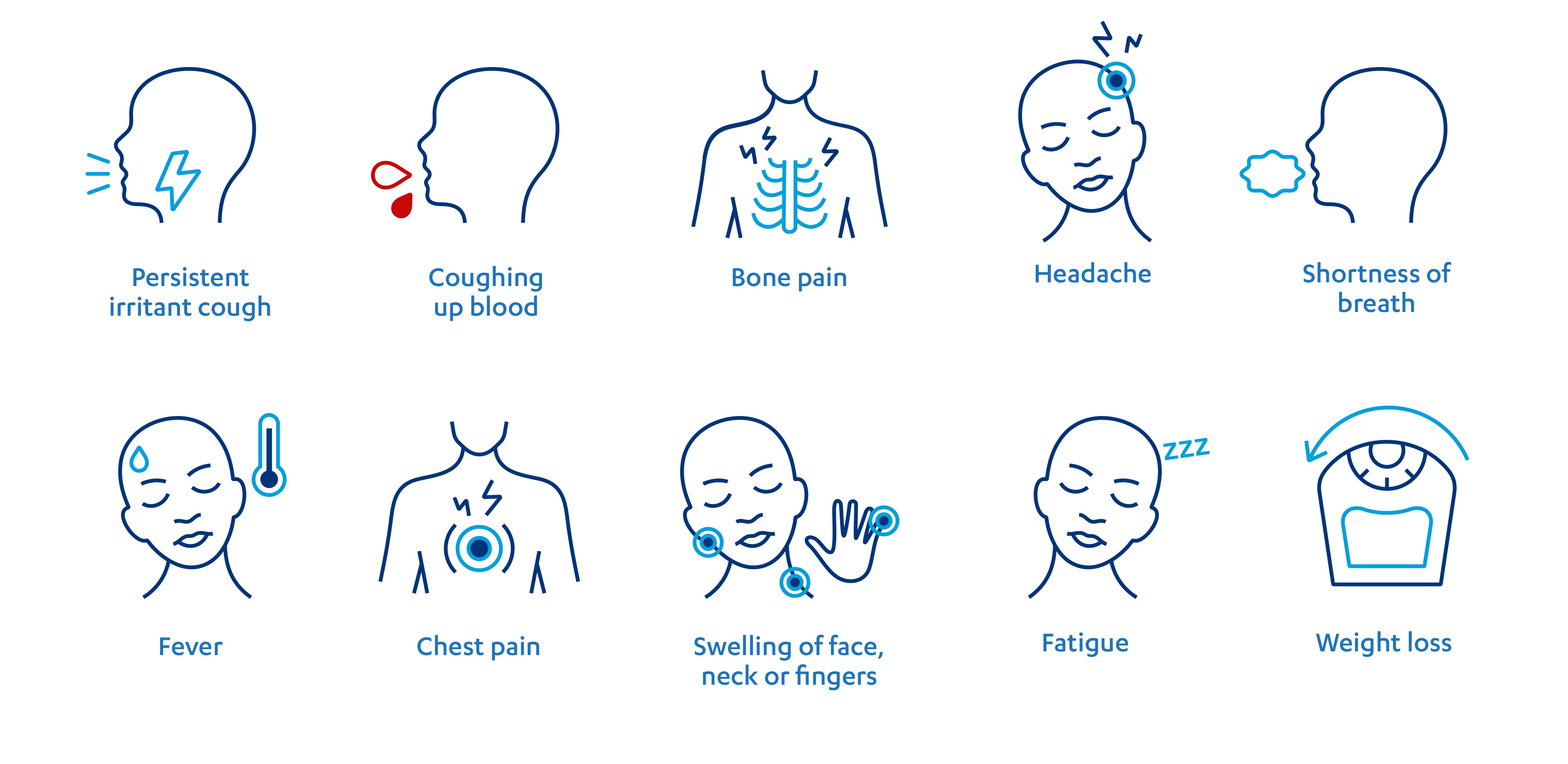Everyone with lungs can get lung cancer
"Do you have lung cancer? But you have never smoked?". This is probably one of the most recurring misconceptions about lung cancer. But it is not the only one. This lung cancer awareness month, we therefore share the most common misconceptions about lung cancer – and we bust these myths. Because in reality, everyone with lungs can get lung cancer!
If you have lung cancer, you are likely aware of the many misconceptions that exist about people with lung cancer. In reality, everyone can get lung cancer. Therefore, it is important that we all recognize the most important symptoms of lung cancer. But first: let’s bust some myths!
1) Only people who smoke get lung cancer
Think again! Did you know that between 10 and 25% of people with lung cancer never smoked – or at least not more than 100 cigarettes in their lifetime?1 A significant number, which can be explained by the presence and manifestation of risk factors other than smoking. Think for example of environment factors, such as air pollution and occupational exposure (e.g. to asbestos), or genetics.
2) Young people don't get lung cancer
The idea of lung cancer only affecting older people is another frequent misconception. Did you know that 17% of all new lung cancer cases in Belgium in 2019 were diagnosed among people younger than 60 years old? 2 Lung cancer in people younger than 60 years old is more likely linked to gene mutation rather than smoking.3
3) If you had lung cancer, you would have symptoms
This is not always true. Lung cancer is often diagnosed late, because it is largely asymptomatic in the beginning or manifesting through general symptoms which do not alarm people enough to go to the doctor. Did you know that 5 to 10% of people diagnosed with lung cancer had no symptoms by the time of the diagnosis?4,5,6
Learn to recognize the symptoms
Symptoms of lung cancer often resemble those normally associated with a common cold, such as coughing or fatigue. Yet, there are other symptoms associated with lung cancer which you should stay alert for.
Be alert for these symptoms7:

More information about Janssen
Learn more about lung cancer and read more about our activities in the field of oncology, such as blood cancer and prostate cancer, or our other areas of expertise. And follow us on social media on Twitter, Facebook and LinkedInto keep up to date with current developments.
©Janssen-Cilag – EM-109676 – Approval date: 10-2022
1 Couraud S, Zalcman G, Milleron B, Morin F, Souquet PJ. Lung cancer in never smokers--a review. Eur J Cancer. 2012 Jun;48(9):1299-311. doi: 10.1016/j.ejca.2012.03.007. Epub 2012 Mar 28. PMID: 22464348.
2 https://www.kanker.be/alles-over-kanker/alle-types-kanker/longkanker
3 https://www.verywellhealth.com/lung-cancer-in-young-adults-2248879#:~:text=Lung%20cancer%20is%20less%20common,the%20outcomes%20are%20usually%20good.
4 Panunzio A, Sartori P. Lung Cancer and Radiological Imaging. Curr Radiopharm. 2020;13(3):238-242. doi: 10.2174/1874471013666200523161849. PMID: 32445458; PMCID: PMC8206195.
5 In, Kwon, et al., 2005. Lung cancer patients who are asymptomatic at diagnosis show favorable prognosis: a korean Lung Cancer Registry Study
6 Kocher et al., 2016. Incidental Diagnosis of Asymptomatic Non-Small-Cell Lung Cancer: A Registry-Based Analysis
7 Spiro, S. G., Gould, M. K., & Colice, G. L. (2007). Initial Evaluation of the Patient With Lung Cancer: Symptoms, Signs, Laboratory Tests, and Paraneoplastic Syndromes. Chest, 132(3), 149S–160S. doi:10.1378/chest.07-1358
